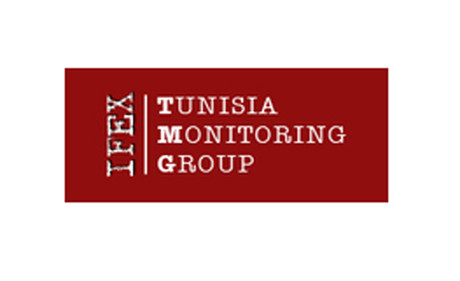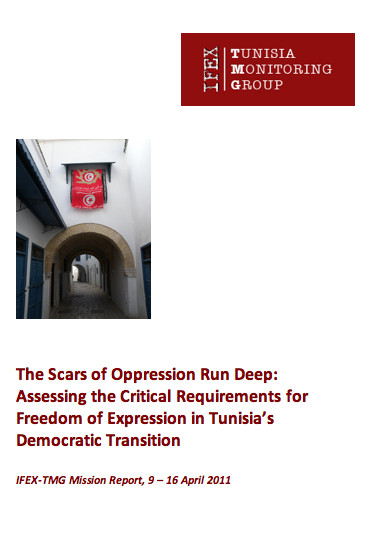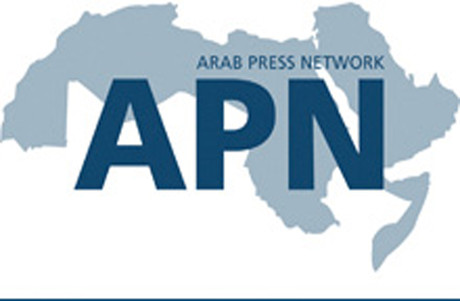This final report, Spring into Winter? Fragile achievements and exceptional challenges for Tunisian free expression defenders, will be shared with the Minister of Human Rights and Transitional Justice, Samir Dilou, as well as Constitutional Assembly members at meetings this week. It serves to briefly outline the status of freedom of expression and association as well as the independence of the judiciary.
“Freedom of expression is not a privilege, it is a fundamental right that Tunisians have fought for and earned. The achievement of this right and others seem to be increasingly compromised by uncertainty, inaction and obstruction and the IFEX-TMG is calling on the government to reverse that trend and to resolutely commit to reforms,” says Virginie Jouan, Chair of the IFEX-TMG.
The report outlines the status of free expression in the country, delineates the legal and structural reforms to the media sector, which have taken shape after the revolution, and suggests further steps needed to empower the media to play a role in consolidating democracy.
The report also outlines the improved status of freedom of association in Tunisia as well as the practical obstacles newly-founded NGOs and associations are facing.
Finally, it reviews the critical issue of judicial reform in Tunisia after decades of being subject to intervention by the executive branch of government. It describes the reforms that have already been enacted as well as the ongoing campaign by judges and associations sidelined during the Ben Ali era for a judiciary that would serve as an independent authority.
In a detailed set of recommendations, the report outlines the work required by the transitional government and the constitutional assembly to safeguard free expression, association and the independence of the judiciary. The most immediate concerns include:
• Guarantee freedom of expression, media independence and access to information, including online, in the Constitution, including the independence of public service media and that of the High Authority for Information and Audiovisual Communication (HAICA). The principles of equality and non-discrimination in exercising freedom of expression must be recognised and prior censorship, licensing or registration system for the print media, individual journalists should be prohibited.
• Support a legal and institutional framework that allows the emergence of a media landscape in step with the political, economic and social challenges facing Tunisia and capable of supporting the emergence of free and independent media, supported by an independent judiciary.
• Initiate the drafting a broadcasting law, to complement the HAICA law, with the aim of strengthening the legal framework for licensing, spectrum assignment, content regulation and media diversity and pluralism.
• Dismantle the complex system of censorship established under Ben Ali and prevent its resurgence especially in the name of morality, including through proposed blasphemy laws.
• Decriminalise press offenses while strengthening adherence to journalistic ethics and promoting self-regulation.
• Adopt a comprehensive law on access to information to address the shortfalls of Decree 2011-54 including the absence of clear mechanisms to facilitate access such as an independent oversight body.
• Enshrine freedom of association and the right to assemble in the constitution.
• Establish an institutional framework which would allow regular consultation and collaboration between state actors and civil society organisations.
• Safeguard judicial independence under the Constitution, including promoting mechanisms that will shield the judges from the pressure of the executive branch, in their appointment, discipline and assignment to cases, and that does not give to the executive branch a decisive power over the career path of sitting judges.
Download the full report, Spring into Winter? Fragile achievements and exceptional challenges for Tunisian free expression defenders, here:
SpringintoWinter_IFEX-TMGreport_July2012FINAL.pdf (703 KB)
SOURCE:
IFEX Tunisia Monitoring Group
Virginie Jouan, Chair
on behalf of the World Association of Newspapers and News Publishers (WAN-IFRA)
jouanvirginie (@) gmail.com
http://www.facebook.com/IFEXTMG
@IFEXTMG
Arabic Network for Human Rights Information
ARTICLE 19
Bahrain Center for Human Rights
Cairo Institute for Human Rights Studies
Canadian Journalists for Free Expression
Cartoonists Rights Network International
Egyptian Organization for Human Rights
Freedom House
Index on Censorship
International Federation of Journalists
International Federation of Library Associations and Institutions
International Press Institute
International Publishers Association
Journaliste en danger (JED)
Maharat Foundation (Skills Foundation)
Media Institute of Southern Africa
Norwegian PEN
World Association of Community Radio Broadcasters (AMARC)
World Association of Newspapers and News Publishers (WAN-IFRA)
World Press Freedom Committee
Writers in Prison Committee, PEN International







